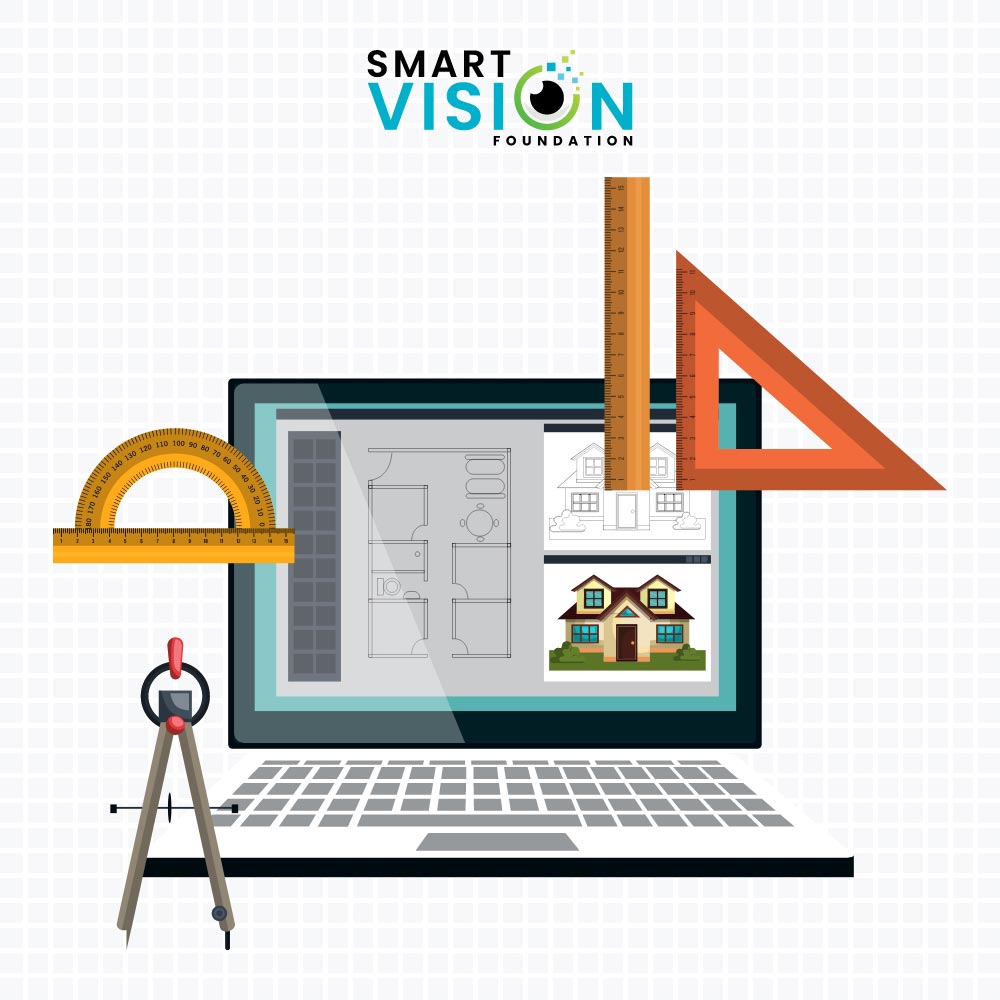Engineering Consultancy
Engineering consultancy is one of the most vital services offered by engineering firms, as it provides clients across various sectors with comprehensive and innovative technical solutions. The scope of engineering consultancy is broad and includes fields such as engineering design, structural analysis, industrial technology, engineering safety, fire protection systems, control and automation, and surveying, among others.
Importance of Engineering Consultancy
The value of engineering consultancy lies in providing optimal technical solutions for projects, ensuring design and execution quality and efficiency, and offering professional guidance across various fields. These services help reduce project costs and risks, ensure compliance with international and local standards, and enhance the overall performance and productivity of operations and facilities.
Key Functions of Engineering Consultancy
Engineering consultancy firms—such as Smart Vision Foundation—offer integrated engineering and technical services by analyzing client needs and delivering suitable solutions. Their scope of work typically includes:
-
Analyzing clients’ technical needs and providing appropriate solutions.
-
Preparing engineering studies and technical designs based on safety, environmental, and project requirements.
-
Developing engineering plans and project timelines, managing and monitoring them from inception to completion.
-
Designing systems and offering technical recommendations suitable for each project.
-
Conducting technical and economic feasibility studies and providing recommendations.
-
Offering technical support during all project phases—design, execution, supervision, and maintenance.
-
Preparing environmental, social, and engineering surveys and delivering insights accordingly.
-
Risk analysis, and designing fire safety and accident prevention systems tailored to industrial and commercial projects.
-
Developing and designing control and automation systems, as well as industrial applications, and providing technical support.
-
Training staff on the usage of engineering systems and technologies while offering ongoing technical support.
-
Delivering expert consultations across various engineering disciplines based on the firm’s deep technical knowledge.
-
Managing projects by coordinating activities related to design, implementation, monitoring, evaluation, and technical solutions.
Essential Skills for Engineering Consultants
To deliver optimal solutions, engineering consultants must have:
-
Extensive knowledge of their specific engineering field, including up-to-date expertise and innovations.
-
Analytical and deductive reasoning skills, enabling effective data interpretation and logical conclusion building.
-
Strong communication and negotiation skills, crucial for client interaction, conflict resolution, and effective collaboration.
-
Leadership and time management abilities, ensuring task delegation, prioritization, and successful team or project leadership.
-
Creativity and innovation, with a proactive approach to improving systems, processes, and solution development.
Tools Used by Engineering Consultancy Providers
Modern engineering consultancy relies heavily on advanced tools and technologies for analyzing, designing, and managing engineering projects. Key tools include:
-
CAD Software: Used for creating, modifying, and analyzing 2D and 3D technical drawings for buildings, bridges, roads, and industrial facilities.
-
BIM Software: Provides 3D modeling and advanced design analysis related to cost, scheduling, and building performance.
-
Simulation Software: Used to analyze loads and conditions affecting projects such as vibrations, collisions, environmental impact, and thermal factors.
-
Project Management Software: Supports planning, task management, resource allocation, scheduling, and reporting.
-
EDA Tools: Applied to the design and analysis of electronic circuits and products.
-
Smart Sensors: Measure physical, chemical, and biological variables such as temperature, humidity, pressure, and flow in engineering projects.
-
Data Analytics & Artificial Intelligence Tools: Analyze large-scale project data from multiple sources to enable smarter, more efficient decisions.

